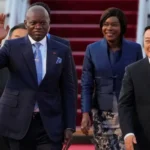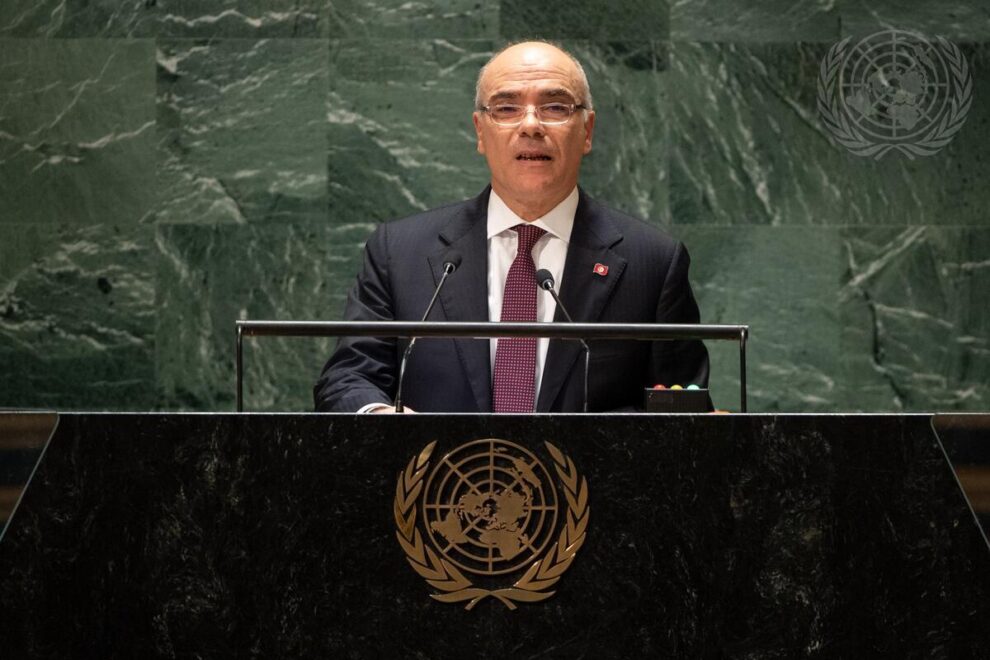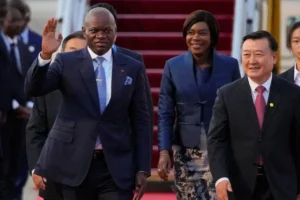Statement summary
NABIL AMMAR, Minister for Foreign Affairs, Migration and Tunisians Abroad of Tunisia, expressed regret that the image of today’s world is distant from the goals and values of the United Nations. Unwavering respect for the Charter, international law and human rights without politicizing them are key to achieving security, peace and development, he stated, welcoming the Secretary-General’s initiative to set up the Global Crisis Response Group on Food, Energy and Finance. In this context, he recalled the appeal by the President of Tunisia during the Food Systems Summit to create a strategic stockpile of grain that the world could use when necessary. He also spotlighted the international financial system and its contribution to widening the gap between developed and developing countries, pointing out that the latter now dedicates resources to repaying debts rather than serving their citizens. He thus advocated for the reform of global economic governance — an essential priority for sustainable development.
He urged all parties to share responsibility by providing climate funding to most affected countries. Due to the impact of climate change, inadequate development, conflict and illegal migration have intensified in North Africa, and criminal networks are exploiting the situation. To tackle this, the international community should build on the 2023 International Conference on Development and Migration — a Tunisian-Italian initiative. His country has always dealt with this phenomenon within its possibilities and human rights obligations, he said, condemning the exploitation of illegal migration for political purposes. Turning to internal affairs, he reported that Tunis will continue to enact reforms, enhance good governance and combat corruption. In July 2021, Tunisians expressed their will to put an end to political manipulations by strengthening democracy and State institutions. At the same time, the country is continuing its transition to green and blue economy while providing social protection to its citizens.
He went on to say that the Palestinian people’s suffering is morally and legally unacceptable and he called on the Security Council to assume its responsibility to force the occupying Power to respect international law. He expressed hope for the creation of an independent and sovereign Palestine with Jerusalem as its capital and called for its full membership in the United Nations. In addition, Tunisia is committed to assisting the Libyan parties in overcoming their differences and achieving a political solution based on intra-Libyan dialogue with the help of the United Nations. In this vein, he voiced his rejection of a military solution, as well as outside interference into Libyan internal issues. To achieve a political solution in Syria and Yemen, convergence of global efforts is required, he added, also demanding hostilities cease in Sudan and that the crisis be overcome through dialogue. More so, he called on the international community to help Africa overcome its crises.
Source: UNITED NATIONS















